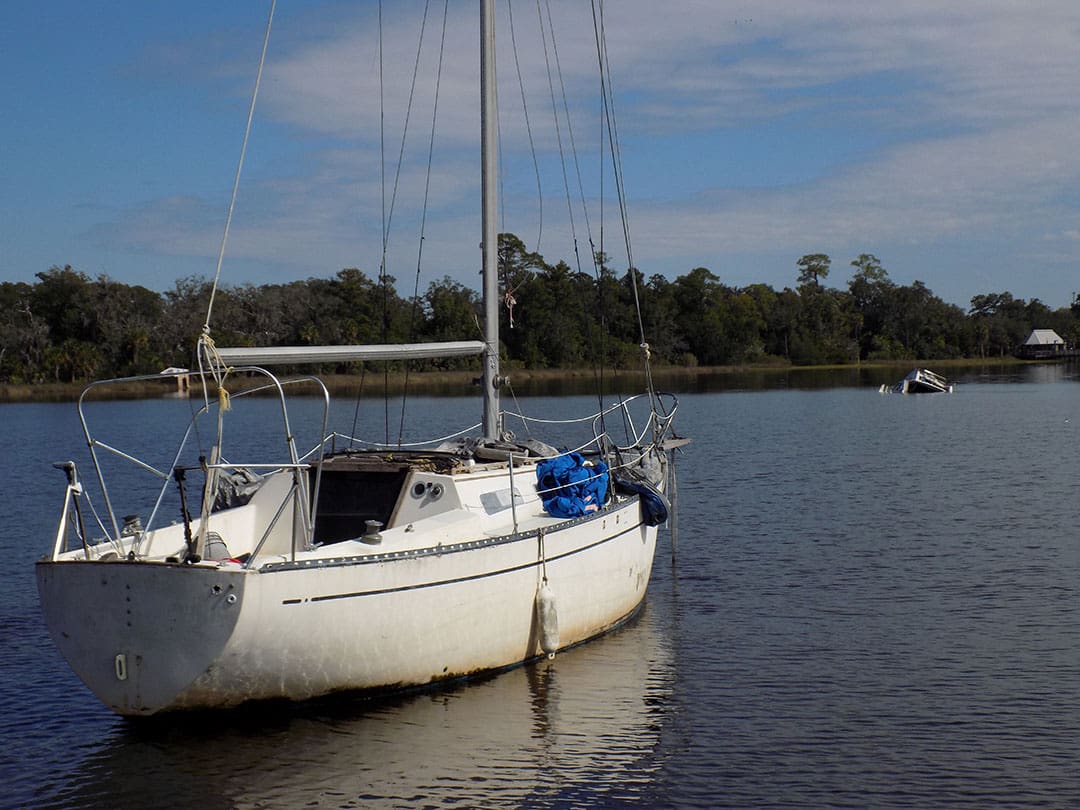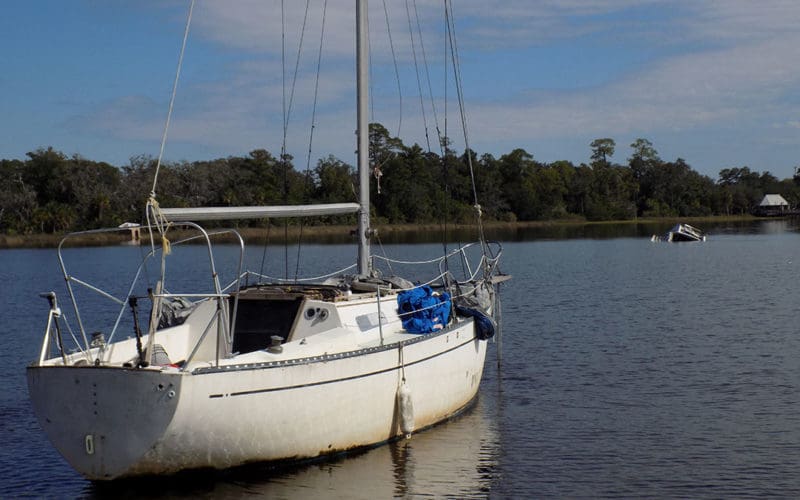
If you’ve ever sailed or driven through the Sunshine State you know that we have a lot of boats here. At last count there are over one million registered recreational vessels throughout the state, which makes Florida the nation’s number one home of pleasure craft.
But not all of them are floating.
Along with the surfeit of boats and marinas the state also has had a long-standing problem with derelict and “at risk” vessels: those that are abandoned, sunk or in danger of sinking — not to be confused with liveaboard and transient boats that may be anchored nearby. In an online forum boater Tom Hale commented that, “This is a sensitive issue for us in Florida. Abandoned boats are a huge problem and… makes it harder for the rest of us.”
When a recreational boat becomes derelict the removal is complex and expensive, typically between $400 to $800 per foot, usually assumed by short-funded counties or municipalities. The Florida Fish & Wildlife Commission (FWC), who manages the waterways of the state does its best to remove the vessel before it sinks, when costs will be far less than re-floating and removing a sunken vessel. And though the FWC has been empowered by state law since 2016 to fine owners for “at-risk” vessels, defined as those that are taking on water, have unsealable ports and hatches, are listing or partially sunk or have no effective means of propulsion, the problem of abandoned and derelict vessels remains. Unfortunately, the law had no provision for penalty after the third noncriminal offense, a stubborn owner could pay the fines and do nothing more.
Ever hopeful to solve this intractable conundrum, the FWC, armed with $8.2 million of increased funding from state lawmakers, is now taking a more creative approach to reduce the backlog of active derelict vessel cases, which at last count totaled 582. The Vessel Turn in Program (VTIP) is underway and Florida boat owners who have been cited or issued a warning for their at-risk vessels will be permitted to surrender the title to the state and walk away without further penalty or cost. The vessel will then be removed and destroyed by a licensed marine contractor.
To be eligible a boat owner must:
1. Possess a valid title
2. Have a current or expired registration or federal doc. number
3. Be afloat in the waters of Florida
4. Not be in a derelict condition or the subject of an active derelict vessel investigation.
5. Not be subject to mitigation efforts to remove or dispose of contaminants onboard.
“This new rule is going to be a win-win for the at-risk vessels as well as our waterways,” predicted Jacksonville Waterways Coordinator, Captain Jim Suber. “I am impressed with the work the FWC staff put into bringing this concept to reality.”
The FWC anticipates the VTIP will result in cost savings for taxpayers and ultimately fewer derelicts in Florida waters. In the meantime Florida is right back where it started six years ago, its waters littered with abandoned and neglected boats, and angry waterfront homeowners who want them all, derelicts and responsible boaters, to vanish.
Go to www.MyFWC.com/VTIP for more info.
Robert Beringer

